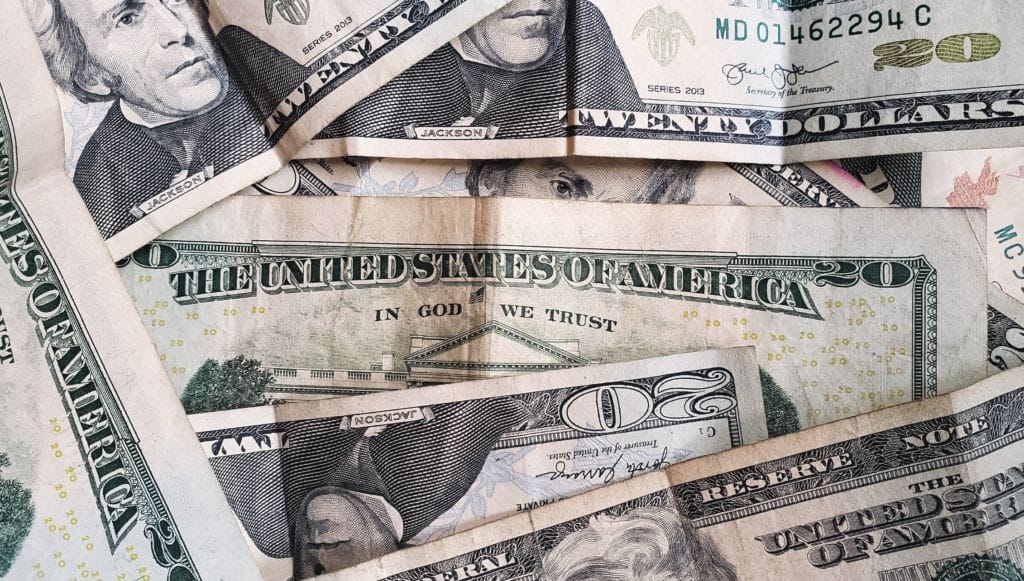Should taxpayers have to pay to give some Americans a so-called guaranteed income — without them having to work for it? The question draws sharply-divided responses. Lisa Fletcher examines both sides of an expanding debate.
The following is a transcript of a report from “Full Measure with Sharyl Attkisson.” Watch the video by clicking the link at the end of the page.
For Tydricka Lewis, growing up in the Southside area of Durham, North Carolina wasn’t easy.
Tydricka Lewis: I got myself started getting in trouble, involved with the teen court system, then jail, then prison. I went to prison for obtained property by false pretense, but multiple counts.
Lisa: Is that writing false checks?
Lewis: Writing false checks.
A single mom, Lewis was 15 years old when she gave birth to her first child. She had her second child while in prison, and her third came after she finished serving her more-than-six-year sentence.
Soon after coming home, Lewis heard about a program run by a nonprofit organization called StepUp Durham, offering residents released from jail $600 a month in cash payments for a year, with no work requirement and no strings attached.
Lewis: I was able to free myself of my part-time job.
Similar to Durham, more than 150 programs across the U.S., in places like Tacoma, Washington, Minneapolis, Minnesota, and Baltimore Maryland, have experimented or are experimenting with regular, unconditional cash payments. Many received some funding from Twitter co-founder Jack Dorsey, who donated $15 million toward the effort. And many used public funding, including leftover Covid money from the Trump and Biden administrations.
Durham’s program received $500,000 from Dorsey, in addition to local tax dollars and other private funding.
But not everyone in Durham is a fan of free cash.
Jahnmaud Lane: I wouldn’t dare take that. It’s an insult.
Under Durham’s StepUp program, Jahnmaud Lane would have been eligible for $7,200 a year when he got out of prison in 2004.
He served two years for shooting and injuring a man. When he got out, he was sweeping floors for $7.25 an hour.
Lisa: A lot of people give up though and look for welfare.
Lane: Well, because they are looking to blame somebody other than themselves. I had nobody to blame but myself. You want to know what creates a lot of poverty in the black community is out-of-wedlock birth. So for that woman who says, “I need this money to help,” what is the father of those children doing for his kids?
Lane says guaranteed income allows people to duck responsibility for their life choices.
Lane: The thing is, people are willing to do what it takes to get a handout, willing to do what it takes to protest, willing to do what it takes to chase something they believe is owed, but they’re not willing to look at themselves and say, I need to do this myself.
A top elected city official in Durham, Mark-Anthony Middleton, is championing the project.
Lisa: Did the program that you instituted here meet your expectations?
Mark-Anthony Middleton: It exceeded my expectations.
He says guaranteed income isn’t about the virtue or vice of those receiving aid, but about saving taxpayer money.
Middleton: So the question is, are there savings to be realized, not only financial savings, but savings in terms of, of heartache, in terms of impact on our society, if we did something like guaranteed income on the front end, as opposed to incarceration, massive entitlements, bailouts, uh, on the back end. What’s different about this guaranteed income is that we focused on a particular population because of limited resources. There was no strings attached.
But the modern push for unconditional cash aid isn’t anything new.
Starting in 1935, the U.S. government provided cash welfare to families. That program, Aid to Families with Dependent Children, eventually assisted about one in seven American kids, until the 1990s, when nearly all Congressional Republicans and about half of Democrats voted to terminate the AFDC through welfare reform — legislation that was signed into law by Democrat President Bill Clinton.
Lisa: So guaranteed income has been tried in the U.S. before. How did it work out?
Robert Rector: It was an absolute disaster.
Heritage Foundation welfare expert Robert Rector authored much of the legislation for welfare reform under Clinton.
Rector: If you take the old program Aid to Families with Dependent Children, it basically paid single mothers to not work. We stopped not the aid, but we stopped this idea of giving you cash without working.
In 2021, President Biden authorized a child tax credit, where families could receive monthly payments, even if no one in the household had a job. Congress is debating a new version of that, which would require recipients to work.
For Full Measure, I’m Lisa Fletcher.
Watch video here.

Visit The Sharyl Attkisson Store today
Unique gifts for independent thinkers
Proceeds benefit independent journalism




This in fact is guaranteed right not to work, as if work was inherently bad.
Really bad messaging. Depression Age parents sent another message: No one owes you a living. Build your life on that fundamental
“Covid” showed us what people did with paid down time. They got drunk, high, beat their partners, children regressed and adult death rates went up and the instantly developed a sense of entitlement and resentment when denied their “free stuff”. There was no upside taking people out of the workplace and intentionally putting them on the dole. Insanity to even propose this.
Learn from the tipping point Australia faced back in the 1970’s: Asia’s Great White Hope or Asia’s Great White Trash, when more young people were on the dole than not. They stopped their downward spiral and became a functioning economy. How did they do it?
Kudos to Mr. Lane for refusing to take free money. No doubt he is a better person after rebuilding his life.
Oh HELL NO on basic guaranteed income, aka handouts! Even liberal Bill Clinton knew that it should be work-fare; not free welfare.
Andrew Yang ran on a UBI platform (Universal Basic Income) and was soundly rejected, even by the democrats.
Every dollar of taxpayer funds dispersed should get a minimum of $0.70 worth of labor in return from those sucking off the taxpayers. Whether it be sweeping floors in a public building or picking up trash along the roads at minimum wage the public deserves some return on that money (we surely don’t get it from our elected representatives).
If a business mega millionaire wants to give away his money, that is their decision but a better use would be to hire those people for some kind of job. Maybe set up a daycare center where several of the workers care for the children of others to go to work at jobs.
The adage of fish is truer here than in any other aspect.